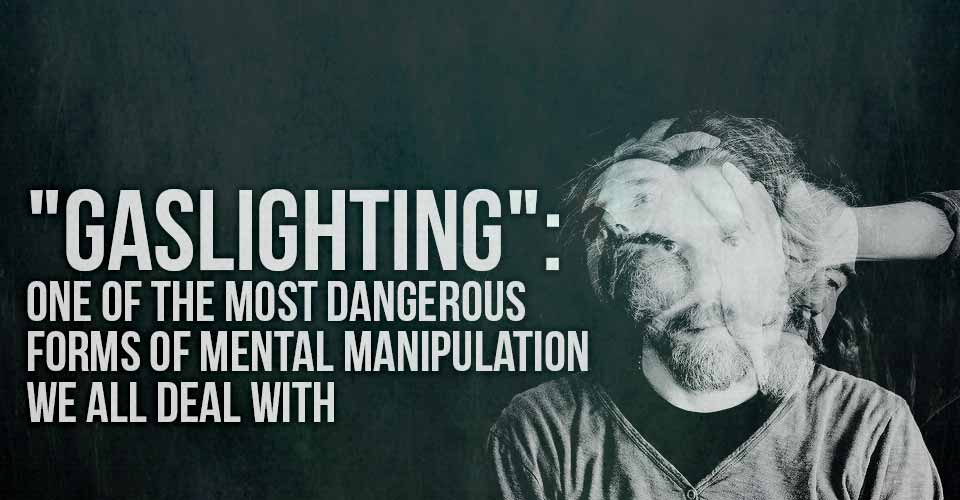The Real Love Campaign: Let's Talk About Gaslighting
Let's talk about Gaslighting.
You may or may not have heard this term before, so let's start by talking about its origins. The term ‘gaslighting’ gets its name from the 1938 play Gaslight. (It also gained a more well known film adaption in 1944).
The premise of the play involves a young woman named Bella in 1880 whose husband attempts convince her that she is losing her mind in order to hide his crimes.
So, what exactly is gaslighting?
Gaslighting is a form of psychological abuse in which a person manipulates another into thinking that they are losing their mind, or simply manipulating them into believing lies to the point that they question their own thoughts and how they perceive the world around them.
An example of attempted gaslighting in media would be in the Harry Potter series when Dolores Umbridge attempts to convince Harry that Voldemort has not returned, despite Harry knowing that he saw him with his own eyes.
There was also a case in the first Twilight book where Edward attempts to convince Bella that he was standing beside her when Tyler almost hit her with his truck.
While these situations are extreme and fictional, they draw parallels to real life situations of psychological abuse.
Has your significant other, friend, or family member ever said something or done something hurt you, and then when you brought it up later they tried adamantly to convince you it never happened? That you were making things up? Maybe they even insisted that you were crazy? Or even, perhaps they said that you were taking things too personally, or are being too sensitive about a situation that clearly did harm?
Then you may have experienced gaslighting.
An example of gaslighting in a relationship:
Bobby and Alexa are having a discussion. Bobby tells Alexa that it hurts him when she calls him names, and makes comments about his appearance. She responds by denying ever calling him names.
Throughout their relationship Alexa continues to make comments about her boyfriend’s appearance. When he tries to defend himself again, she insists that he's too sensitive and this starts arguments. This cycle continues and Bobby begins to be manipulated into thinking the situation is his fault, and that he is the one causing problems in the relationship.
Another example:
Lizie’s father is physically abusive. Every time he hurts her, he tells her that she is too sensitive. “I didn't hit you that hard!” or maybe denying it all together, to the point that Lizie may begin to think that she is the problem, or even that this is normal.
Some other gaslighting phrases include but are not limited to:
“You have nothing to be upset about.”
“You're crazy! That never happened.”
“I never said that, you need to get your head checked,”
“You have nothing to be upset about,”
“You're just sensitive,”
“You’re overreacting, that’s not how it happened,”
Some things to think about:
Do you think you or a friend may be the victim of gaslighting? Bring the situation to a trusted adult.
Also, do you recognise any of these behaviours in yourself? Remember that all people are a work in progress. You can change, and learn how to have a healthy relationship.
If you feel you or your friend are in immediate danger, dial emergency services first.
Domestic abuse hotline US: http://www.thehotline.org
Domestic Abuse/Violence Hotline UK: http://www.nationaldomesticviolencehelpline.org.uk
If you would like to read more in-depth information on gaslighting, you can find that here: https://www.google.com/amp/s/www.psychologytoday.com/blog/here-there-and-everywhere/201701/11-signs-gaslighting-in-relationship%3Famp
Stay safe and remember, Real Love; isn't supposed to hurt.
- M.W Leigh
For parents:
You may be reading this thinking: “But how can I support my child who may be experiencing this?” Here are some tips.
•You can open up a dialogue with your children about gaslighting, and abuse in general.
•Start out by making an effort to create a judgement free environment for your child. Make sure they know that you are always on their side.
•When someone is gaslighted they may be convinced that a situation is their fault. They may be hesitant to discuss it with adults in fear of being “in trouble”.
•Remind your child to always trust their gut insists. Tell them to never let anyone tell them what they saw with their own eyes, or heard didn't happen.
•Remember that men can be abused, and women can be abusers.
Abuse is abuse, it doesn't discriminate based on gender, don't dismiss your son’s abuse because he is a man. This sends a terrible message.
•Teach them about healthy relationships in general, make sure they have an understanding of what is and isn't healthy in a relationship.
•If your child comes to you with concerns, listen. You need to take these conversations seriously and try to stay calm and collected.
•Remind your child that you're there to support them.
If your child is experiencing abuse, consider encouraging them to seek therapy if you are able to provide that resource for them.
At the end of the day it's our job, as adults, parents and teachers to teach the next generation about how to conduct a healthy relationships, and how to value themselves.
Lastly,
Be aware of the warning signs.
Is your child suddenly becoming depressed or anxious after starting a new relationship?
Does their significant other seem to be texting them excessively?
Or the opposite: Does your child's significant other seem to not exist until they want something?
Does your child suddenly dress or act differently?
Are you finding broken items belonging to your child? Electronics, walls, lamps?
Is your child's significant other violent towards other people or animals?
If you notice first hand abusive or toxic behaviour, talk to your child about why that behaviour isn't acceptable as well as starting to figure out ways to handle the situation.
I hope this gives you a starting point.
Further reading for parents:
http://www.loveisrespect.org/for-someone-else/help-my-child/
http://www.thehotline.org/2013/02/how-to-recognize/



Comments
Post a Comment